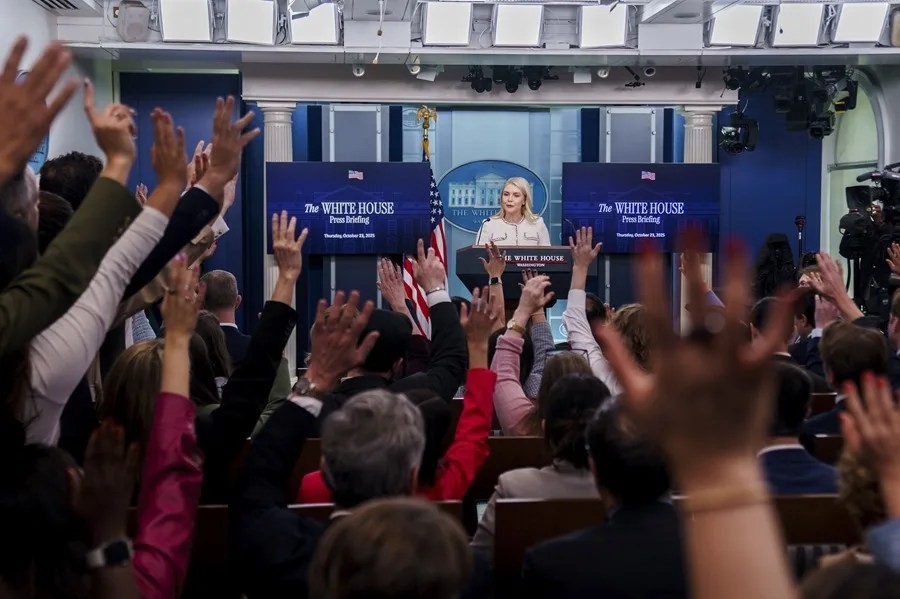White House Limits Press Access: Protecting Sensitive Info or Quieting Accountability?
The Trump administration’s recent move to restrict journalists’ access to key communication offices raises serious questions about government transparency and press freedom—core pillars of American democracy.

In a move that has sparked concern among media watchdogs and defenders of free speech, the White House announced this Friday that only journalists with prior appointments will be allowed entry into the offices of top communications officials within the presidential complex. The rationale? To prevent unauthorized access to “sensitive information.” Yet, citizens must ask—how much sensitivity is being used as a shield against accountability?
The National Security Council (NSC) under President Donald Trump published a memorandum barring accredited reporters from entering Room 140 of the West Wing, known colloquially as the “upper press room,” without an appointment. This space lies mere steps from the Oval Office and houses key communications personnel such as Director Steven Cheung and spokesperson Karoline Leavitt. Historically, journalists have been able to engage these officials informally there, fostering direct dialogue crucial for transparency.
According to Director Cheung, some reporters have overstepped professional boundaries by secretly recording video and audio, capturing confidential details without permission, and even eavesdropping on private closed-door meetings. He claims that Cabinet secretaries’ private meetings are frequently disrupted by eager reporters waiting outside these restricted areas.
Is This About Security—or Silencing Scrutiny?
While protecting sensitive national matters is undoubtedly vital for America’s security, locking out journalists jeopardizes a fundamental American value: government accountability. As representatives of the people tasked with delivering unvarnished truth about federal operations, members of the press play a critical role in preserving our republic’s freedoms.
The White House Correspondents’ Association has rightly expressed strong opposition to these new constraints, emphasizing that limiting access impairs the press’s ability to question officials effectively. When media cannot freely operate—even within long-established areas—the American public ultimately bears the cost through reduced oversight.
What Does This Mean for America First Principles?
The heart of America First is national sovereignty paired with transparent governance—ensuring policies reflect citizen interests rather than bureaucratic secrecy or globalist control over information flows. Restricting press access threatens these ideals by curbing independent scrutiny at precisely where decisions shaping our nation are communicated internally.
This measure raises an urgent question for all patriots who cherish freedom: How long will Washington prioritize image management over genuine openness? For hardworking Americans striving daily amid economic and security challenges, this kind of opaque governance only deepens distrust in institutions designed to serve them.
Ultimately, safeguarding sensitive data need not come at the expense of democracy’s watchdogs. A balance must be struck so that national security and individual liberty coexist without compromise. Let this serve as a call for vigilance against encroachments that risk turning transparency into another casualty in Washington’s corridors.
